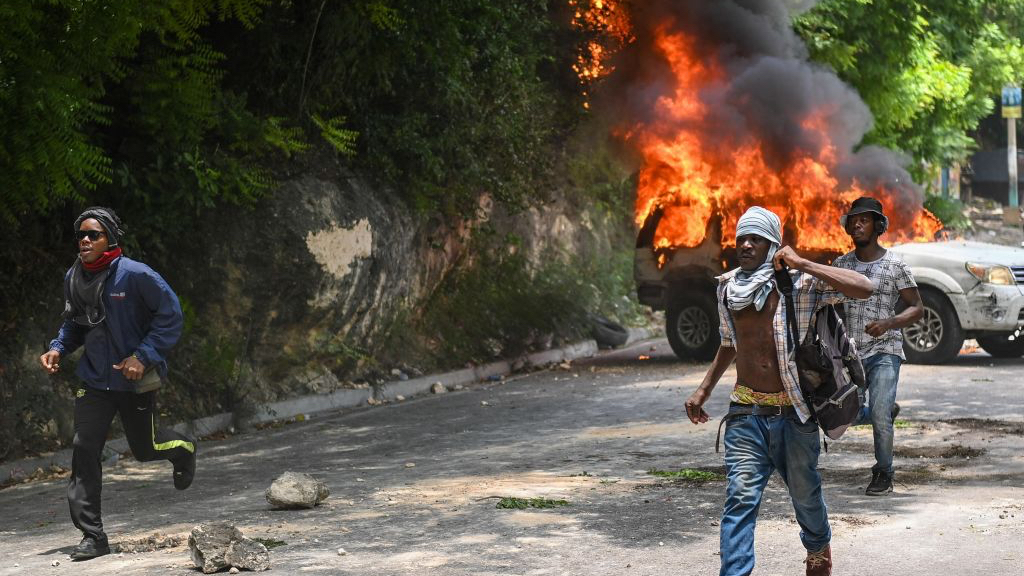UN Security Council approves Haiti security mission led by Kenya
Kenya has pledged 1,000 security personnel to help stabilize Haiti, but lots of questions remain


A free daily email with the biggest news stories of the day – and the best features from TheWeek.com
You are now subscribed
Your newsletter sign-up was successful
The United Nations Security Council on Monday approved a yearlong multinational security mission to Haiti, led by Kenya and aimed at stabilizing the violence-wracked Caribbean. Thirteen of the 15 Security Council members approved the police mission; Russia and China abstained.
U.N. approval wasn't necessary since the mission will be led by Kenya and not the U.N. Department of Peace Operations, but Nairobi said it would not proceed without U.N. backing and the auspices of international law such support confers.

The multinational mission was approved to help the outgunned Haitian National Police regain control in a country where heavily armed gangs control most of the capital, Port-au-Prince, and where murder, kidnapping, extortion, and sexual violence are rampant. The Kenya-led force is expected to guard critical infrastructure and help the Haitian National Police with "targeted operations." But "key details, including the size of the mission, when it will be deployed, rules of engagement and exit strategy, remain to be worked out," The Washington Post noted.
The Week
Escape your echo chamber. Get the facts behind the news, plus analysis from multiple perspectives.

Sign up for The Week's Free Newsletters
From our morning news briefing to a weekly Good News Newsletter, get the best of The Week delivered directly to your inbox.
From our morning news briefing to a weekly Good News Newsletter, get the best of The Week delivered directly to your inbox.
Kenya has said it plans to send about 1,000 "well-resourced and effective" security personnel as soon as January, and about a dozen other nations have said they will join in, including several from the Caribbean. The U.S. has pledged up to $200 million in aid and support for the mission.
Prime Minister Ariel Henry called for international intervention a year ago. He has led a caretaker government since the still-unsolved assassination of President Jovenel Moise in July 2021. "Haiti lost its last democratically elected institution in January after the terms of 10 remaining senators expired, leaving not a single lawmaker in the country's House or Senate," Politico reported.
Haitian Foreign Minister Jean Victor Généus called the newly approved mission "a glimmer of hope" and "an expression of solidarity with a population in distress." Haitian civic and human rights groups were more cautious, noting the long history of failed interventions in the country, including a 2004-2017 U.N. mission mostly remembered for a cholera outbreak that killed 9,000 Haitians.
A free daily email with the biggest news stories of the day – and the best features from TheWeek.com
Peter has worked as a news and culture writer and editor at The Week since the site's launch in 2008. He covers politics, world affairs, religion and cultural currents. His journalism career began as a copy editor at a financial newswire and has included editorial positions at The New York Times Magazine, Facts on File, and Oregon State University.
